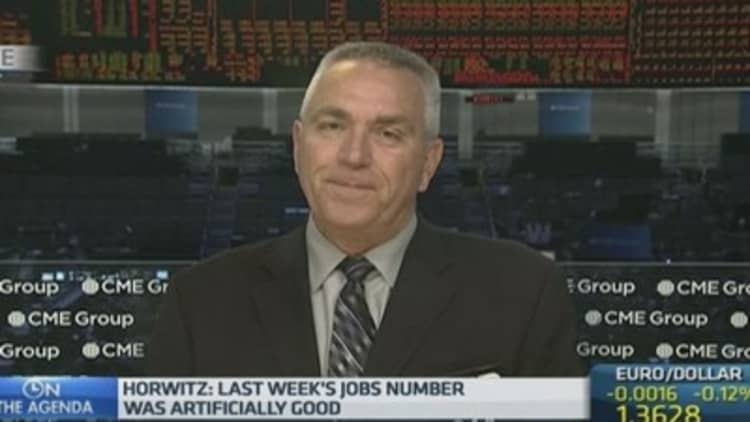While many businesses contend that a "skills gap" is a major reason that they're not filling jobs, a new survey says the companies themselves may be a big reason they can't hire anyone.
"We're seeing more people take jobs with firms that have a shorter interview process," said Scott Bass, director of marketing for MRINetwork, a global recruiting firm, who conducted the poll.
"The companies that are taking too long to make up their minds are losing top candidates to other businesses, and their jobs remain open," Bass said.
Read MoreEmployers say they can't fill jobs—and here's why
MRINetworks surveyed 236 of its recruiters around the globe on professional and managerial hiring trends, but with a focus on the U.S.
Industries covered included health care, financials and construction, among others.
According to the survey, 31 percent of MRINetwork recruiters listed an inability of hiring managers to find suitable candidates for openings. That's the skills gap where a candidate's talents don't match the job.
However, job seekers are being a bit more selective these days as well, and that's due in large part to the interview process, said MRINetwork's Bass.
Thirty-one percent of recruiters said the top reason that good candidates continue to refuse job offers is because they are taking offers with other companies.
Read MoreMicrosoft plans to cut 1,000 jobs in Finland: Newspaper
Job candidates are taking those offers before other companies have finished their interview process.
Applicants are rejecting job offers that have come after three interviews and in some cases, just two interviews—because another offer came sooner.
"A lot of these companies are acting like it's still the recession and taking a lot of time to hire someone," Bass said. "They think there's a perfect candidate out there, but in doing so, they are losing potential employees."
Bass added that many companies haved too many people involved in the hiring process. He also said that businesses need to adjust to the new situation and be a bit more aggressive in their budgeting.
Bass admitted that his own firm is having to streamline its hiring practices and adjust its hiring budget upward.
He also described the job market as still being soft despite a falling unemployment rate—currently at an official 6.3 percent—but he said the market is somewhat tilted in favor of candidates more than employers.

But even as job seekers gain some ground, low pay is still a big reason many applicants refuse a position, according to MRINetwork's study. Twenty-six percent of MRINetwork recruiters reported that disappointing compensation is the second most common reason that job offers are turned down.
"Wages are still too low," said Emily Rosenberg, director of the labor education center at DePaul University. "Everyone benefits if they go up. It's shortsighted for businesses not to see that."
Read More
In addition to that, said MRINetwork's Bass, companies are losing out on people because applicants don't want double the work load due to layoffs or retirements.
"A good candidate is not going to accept that anymore," he said.
—By CNBC's Mark Koba


